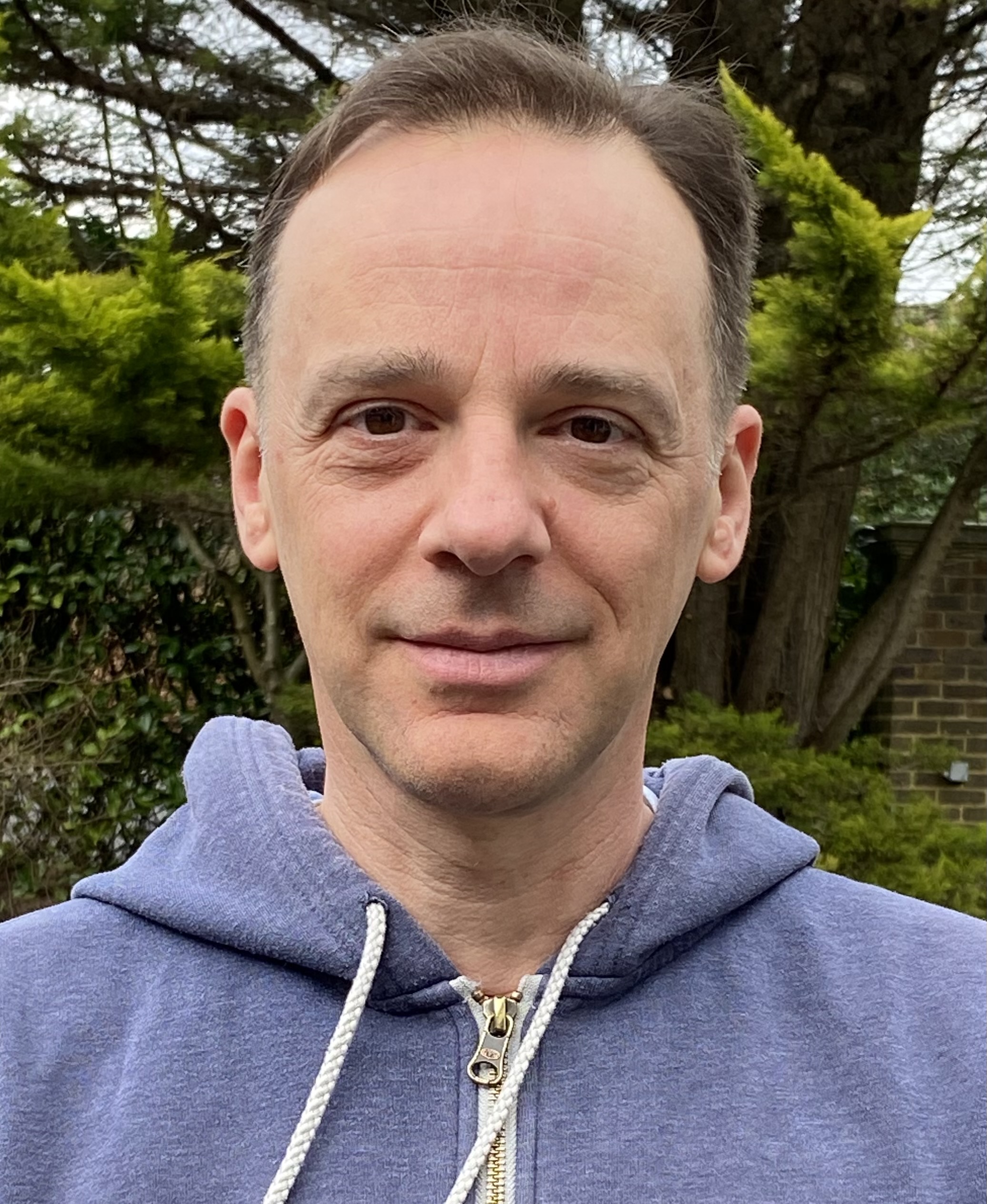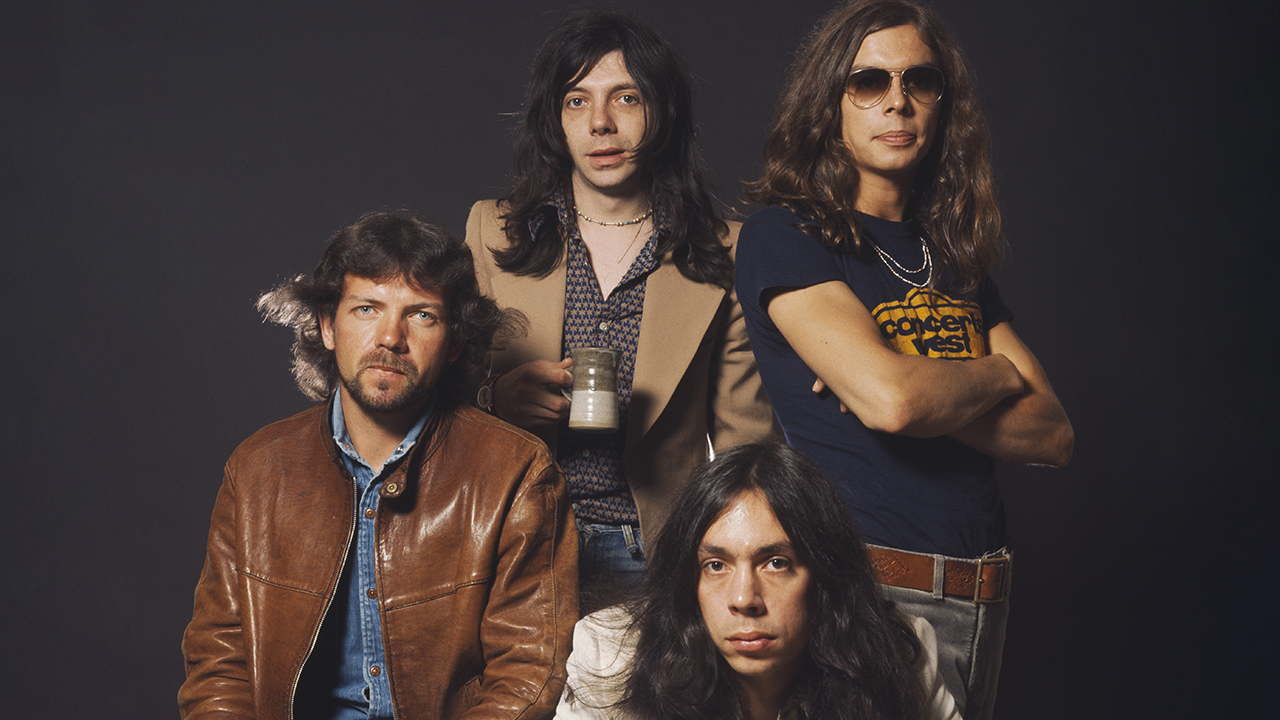"By the time we reach our dotage we should be throwing out an album every few minutes!" How Credo prepared to take on the world!
Back in 2011 Credo released their third studio album Against Reason full of optimism...
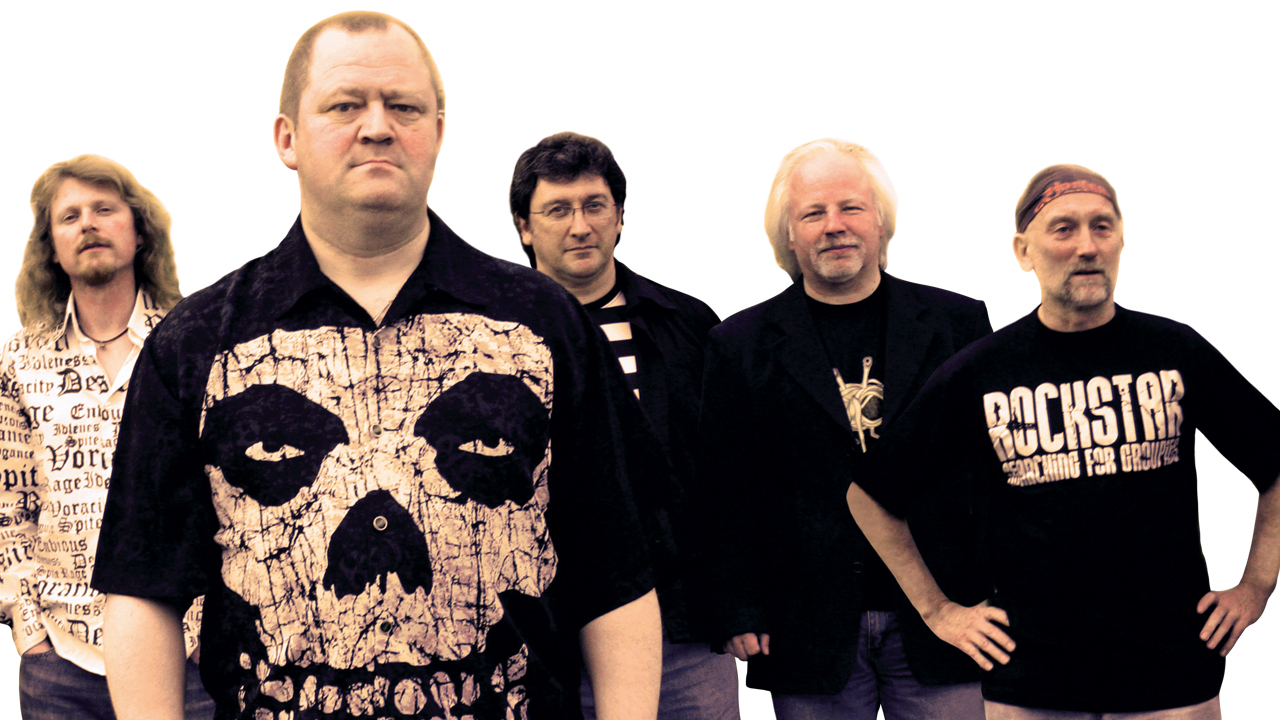
Back in 2011 Prog sat down with Credo's Mike Varty and Tim Birell to discuss the band's progress thus far as they were about to release their third album Against Reason. Although they've managed just one live release since, the band's website states work on a fourth studio album is "speeding up" as of 2023...
Tim Birrell and Mike Varty have made a short trip from their homes in Hampshire to meet Prog at a watering hole in Surrey. In stark contrast, Credo’s journey as a band has proved considerably more lengthy and tortuous. On the eve of the release of Against Reason, which is only their third studio album in almost twenty years, Credo remain Brit prog minnows. But they represent the epitome of resilience, embodying passion for their art and sheer bloody mindedness, as they have weathered health scares, redundancies and good old fashioned departing band members.
To begin at the beginning, the core of Credo came together in early 1992 when vocalist Mark Colton joined what was then Ad Hoc. Two years later in 1994 the re-named Credo issued their debut album Field Of Vision on the Cyclops label. But it would take until 2005 before its successor Rhetoric emerged. “In between those two dates, everything happened,” Birrell explains with a wry smile.
Firstly the band had to deal with the relatively mundane, namely a couple of departures. Keyboardist and principal lyricist Mik Stovold jumped ship first, with Varty joining in his stead six months later. Then drummer Paul Clarke threw in the towel and it took the band a further 18 months to replace him. “I was amazed at how long it took,” Varty recalls. “But I was also amazed at how we actually managed to write and rehearse for that period and still hold the band together.” Indeed that cohesiveness within the band would prove vital to its survival.
Although the band’s current line-up was in place by 1999, Credo’s best-laid plans to write what would eventually emerge as Rhetoric were disrupted by a prolonged period during which what Varty refers to as “a comedy of disasters” unfolded. The first drama was when Varty himself fractured his skull. “Then various people lost their jobs, although later when I got made redundant that was finally the catalyst for getting Rhetoric underway,” he explains. But most seriously, in the interim Colton fell very suddenly and severely ill, requiring emergency surgery. “He was in serious pain and it nearly killed him,” Birrell recalls. Colton proceeded to spend two years in and out of hospitals but fortunately is now restored to health.
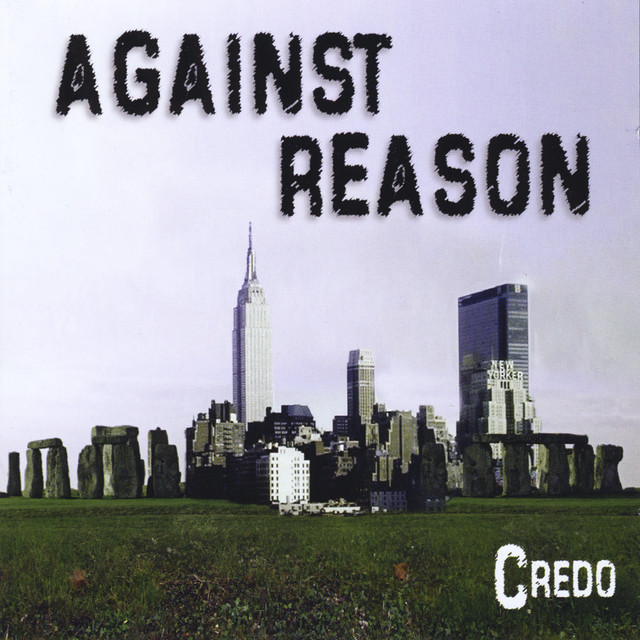
In contrast to the 11-year gap between Field Of Vision and Rhetoric, a mere five and a half years have elapsed between the latter and Credo’s forthcoming third album, Against Reason. “So I predict the next one will be in two and three quarter years. And by the time we reach our dotage we should be throwing out an album every few minutes!” Birrell jokes. (In mitigation in 2009 Credo issued a well received live DVD, This Is What We Do, recorded in Poland.)
Happily after a rather turbulent decade for the band, life for Credo has become more stable of late. “We’ve been writing Against Reason mainly in the last two and a half years. We had ideas and found ourselves ready to do another album.”
Sign up below to get the latest from Prog, plus exclusive special offers, direct to your inbox!
While the band’s debut was very much a typical neo-prog album of its era – with the inherent limitations of being recorded and mixed in a mere four days – Rhetoric demonstrated a significant step forwards. And as far as Birrell is concerned, Against Reason heralds the band’s progression musically. “It’s crunchier than Rhetoric and I’m much happier with the guitar and the overall sound on this album; it’s a bit rockier.”
“I can see a definite development in the maturity of the songwriting and playing,” Varty adds. “We’ve spent a long time putting our efforts into writing what we consider more songy material; some people may say it’s not quite as proggy. I just try to make it enjoyable. I like to come back the next day and say ‘That’s a great song’. If I can get up the next day and listen to it and it still sends shivers up my spine, then that’s what I’m interested in. I don’t stop until I get that shiver – which may be another reason why we take quite a long time to come up with these things.”
Given the infrequency of their albums it’s quite an achievement that Credo have managed not to allow their energy to dissipate completely. As far as Birrell is concerned, the reason is a simple one: “We just enjoy playing together,” he explains.
“Mark keeps this band together because he’s the gig booker and the contacts man,” Varty elaborates. “He prefers gigging to the recording process. Because he’s always keeping his nose in and loves prog, he maintains all his contacts and can always arrange a gig. My opinion is there’s no point in being in a band and writing music unless you’ve got a gig to play it at. That’s what keeps us going.” Indeed the band have played 30-plus shows since the release of Rhetoric, including venturing to continental Europe and the US. But their live shows have admittedly been sporadic. As Varty says, “It’s very difficult to line up a 10-date tour these days unless you’re big and well known.” But Credo’s enthusiasm for their art is irrepressible and Varty is eager for the band to continue to make the effort to travel to play shows whenever possible. “I think there are a few bands who can’t be bothered to travel around sometimes,” he comments.
“We’re going to try to gig as much as we can,” Birrell picks up. “But I don’t think we will ever do classic tours – realistically speaking we would have to be a lot more popular! Hiring a tour bus at £600 a day, you need to know that you’re going to get hundreds of people through the door every night. I don’t think we’re well known enough to do that.”
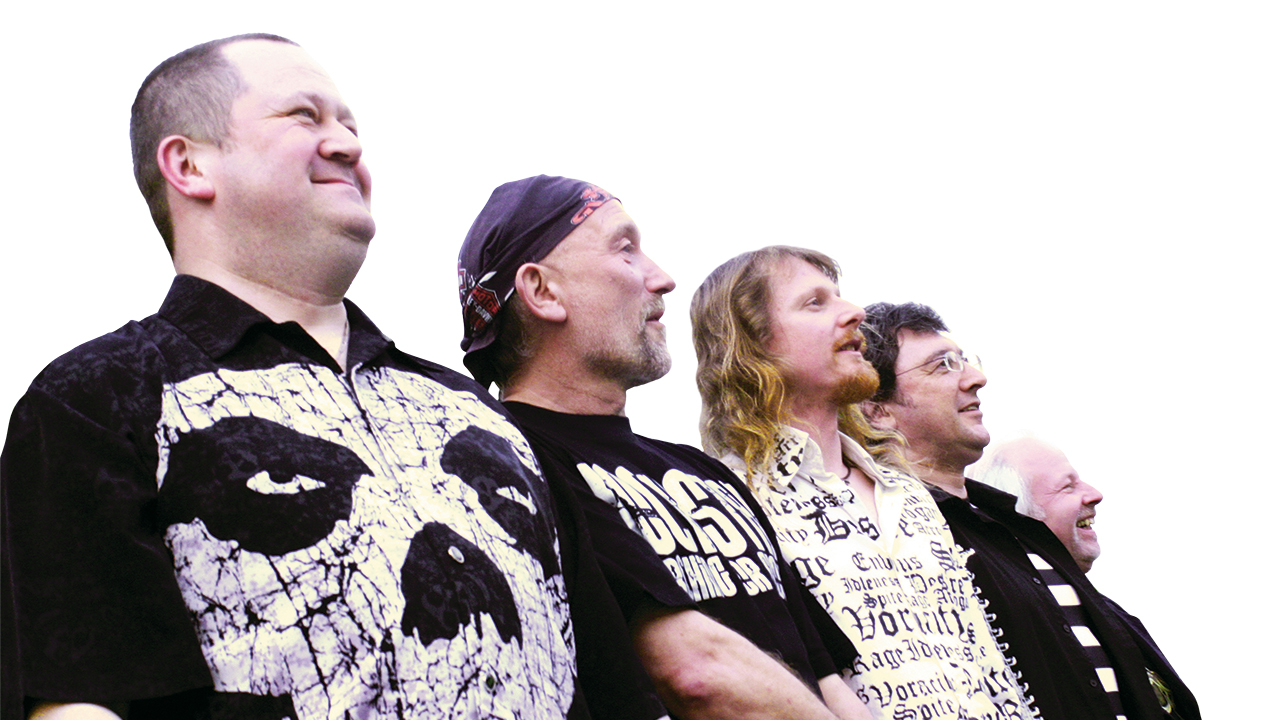
As it stands, Credo indubitably are still playing in the minor leagues of British prog. But that’s not for lack of quality of their recent material and their clear aim is to raise their profile. “That’s our intention,” Birrell states. “But we’re not experts in the music business; we don’t have all the contacts. It’s about persuading people to give us gigs. Mark has been very successful to date – but he’s one guy with a full time job. We’ve recently got a PR who’s making a difference. So I’m hopeful that we will get some more opportunities. And if we get those opportunities, we’ll take them.”
Ultimately Credo is a band which will probably never scale the dizzy heights of stardom. But equally given that they have survived the slings and arrows thrown at them by the fickle hand of fate, they seem unlikely to implode either. As Varty says, “We know each other very well and all get on. There’s no-one in this band’s who’s a complete arsehole. We’ve been hanging around together for 15 years which gets a lot of crap out of the way!”.
Nick Shilton has written extensively for Prog since its launch in 2009 and prior to that freelanced for various music magazines including Classic Rock. Since 2019 he has also run Kingmaker Publishing, which to date has published two acclaimed biographies of Genesis as well as Marillion keyboardist Mark Kelly’s autobiography, and Kingmaker Management (looking after the careers of various bands including Big Big Train). Nick started his career as a finance lawyer in London and Paris before founding a leading international recruitment business and has previously also run a record label.
